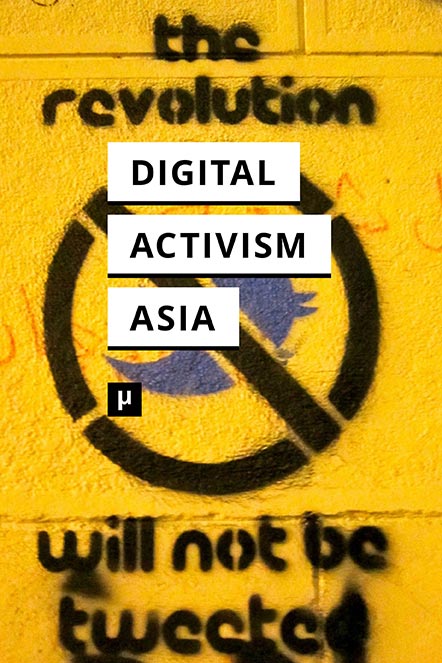Decoding the Chinese Internet: A Glossary of Political Slang, 3rd ed (2015)
Filed under book | Tags: · china, internet, internet activism, memes, netizens, resistance

“China Digital Times maintains a wiki of subversive Chinese Internet language, an essential element of China’s “resistance discourse” which counters state propaganda. This Grass-Mud Horse Lexicon is named after the unofficial mascot of Chinese netizenry, an alpaca whose name sounds nearly the same as a serious profanity. The Lexicon contains hundreds of terms and since 2013 the most time-tested and ubiquitous ones have been compiled into ebook glossaries.
This third edition of Decoding the Chinese Internet includes new coinages and iconic turns of phrase. Organized by broad categories, it guides readers through the raucous world of China’s online resistance discourse. Students of Mandarin will gain insight into word play and learn terms that are key to understanding Chinese Internet language. But no knowledge of Chinese is needed to appreciate the creative leaps netizens make in order to keep talking.”
First published in 2013
Third edition
Introduction by Xiao Qiang and Perry Link
Publisher China Digital Times, June 2015
Creative Commons BY-NC-SA 4.0 International License
ISBN 9780989824347
69 pages
HT amy
Commentary: Washington Post (2015), Public Radio International (2015).
pay-what-you-want PDF
PDF (5 MB)
The Boy Who Could Change the World: The Writings of Aaron Swartz (2015)
Filed under book | Tags: · code, copyright, hacking, hacktivism, intellectual property, internet, internet activism, open access, web

“The writings of the computer genius and Internet hacktivist whose tragic suicide shook the world
In January 2013, Aaron Swartz, under arrest and threatened with thirty-five years’ imprisonment, committed suicide. He was twenty-six. But in his short life he had changed the world: reshaping the Internet, questioning our assumptions about intellectual property, and creating some of the tools we use in our daily online lives. He was also a leading critic of the politics of the Web.
In this collection of his writings that spans over a decade, Swartz displays his passion for and in-depth knowledge of intellectual property, copyright, and the architecture of the Internet. The Boy Who Could Change the World contains the life’s work of one of the most original minds of our time.”
With an Introduction by Lawrence Lessig
Publisher The New Press, New York/London, 2015
ISBN 162097066X, 9781620970669
368 pages
See also MIT prosecution report.
Comment (0)Nishant Shah, Puthiya Purayil Sneha, Sumandro Chattapadhyay (eds.): Digital Activism in Asia (2015)
Filed under book | Tags: · activism, asia, internet, internet activism, media activism, participation, politics, protest, social media, social movements, software

“The digital turn might as well be marked as an Asian turn. From flash-mobs in Taiwan to feminist mobilisations in India, from hybrid media strategies of Syrian activists to cultural protests in Thailand, we see the emergence of political acts that transform the citizen from being a beneficiary of change to becoming an agent of change. In co-shaping these changes, what the digital shall be used for, and what its consequences will be, are both up for speculation and negotiation.
Digital Activism in Asia marks a particular shift where these questions are no longer being refracted through the ICT4D logic, or the West’s attempts to save Asia from itself, but shaped by multiplicity, unevenness, and urgencies of digital sites and users in Asia.
This reader crowd-sources critical tools, concepts, analyses, and annotations, self-identified by a network of change makers in Asia as important in their own practices within their own contexts.”
Publisher meson press, Lüneburg, July 2015
Creative Commons BY-SA 4.0 License
ISBN 9783957960511
273 pages
PDF (9 MB, updated 2015-8-13)
Comments (2)
